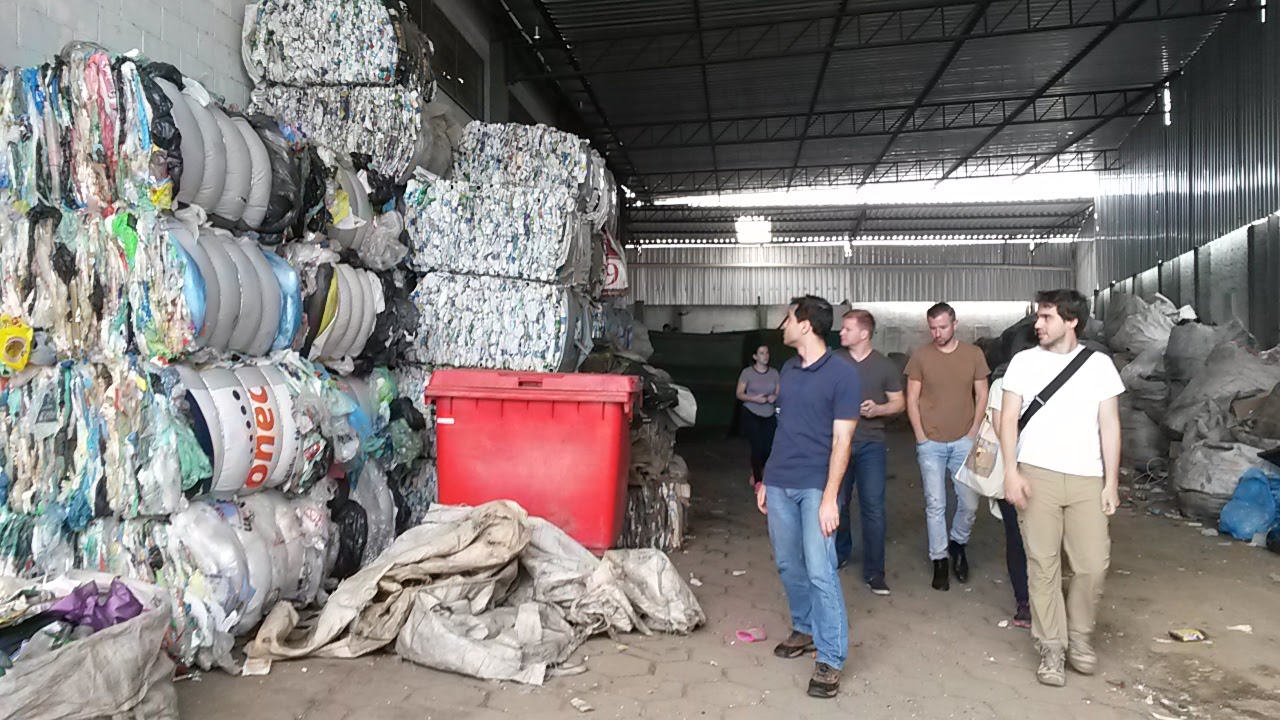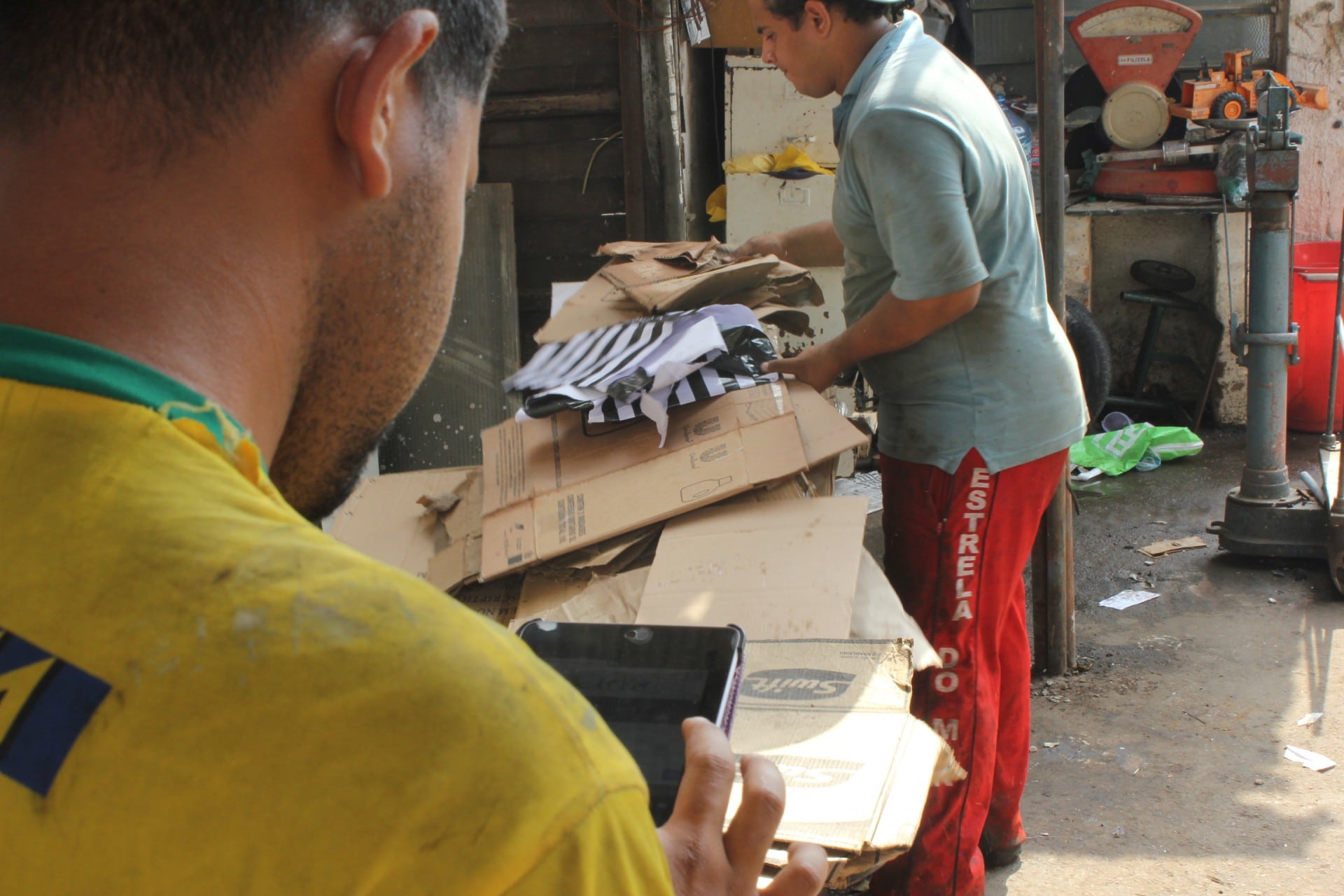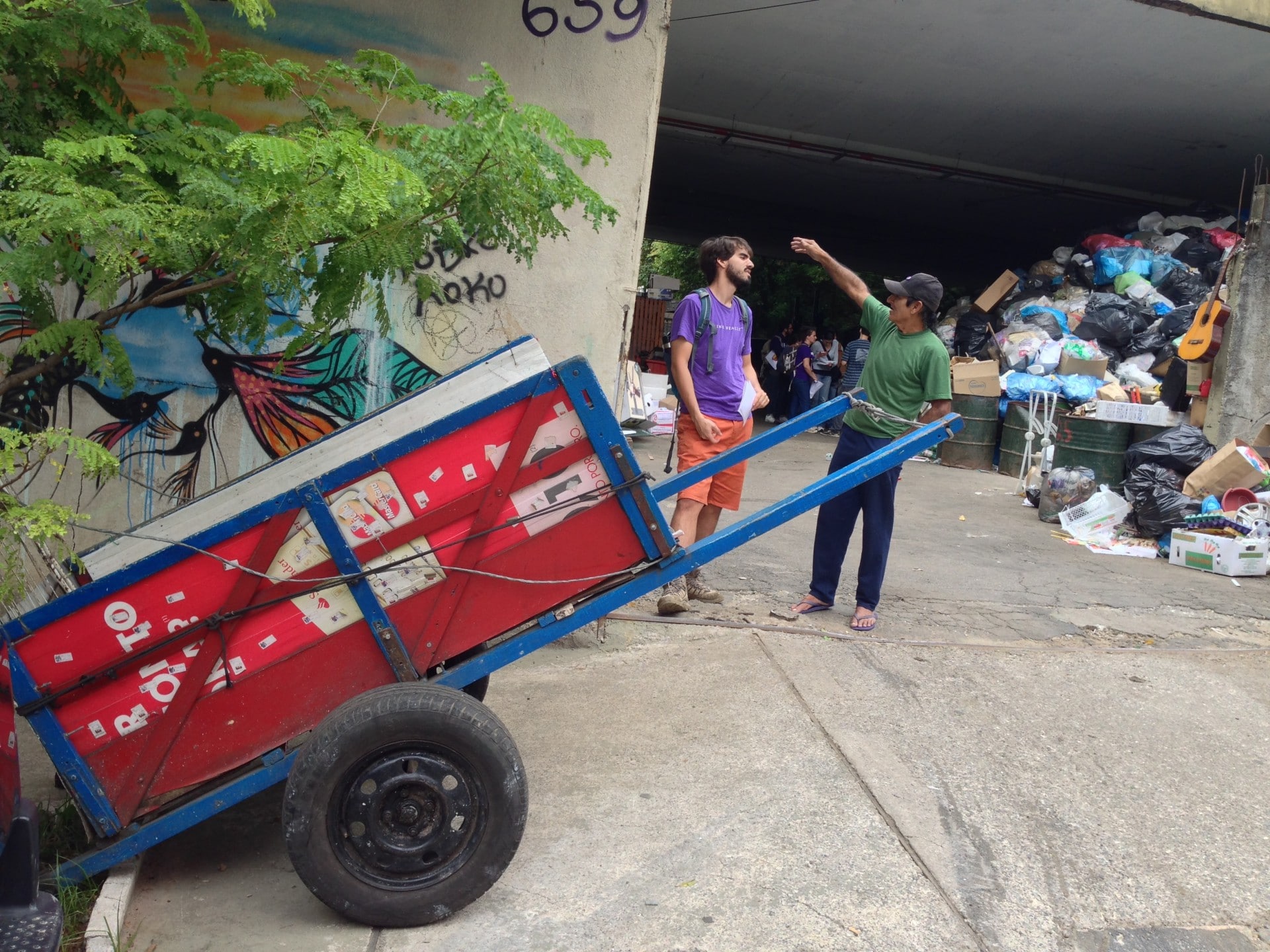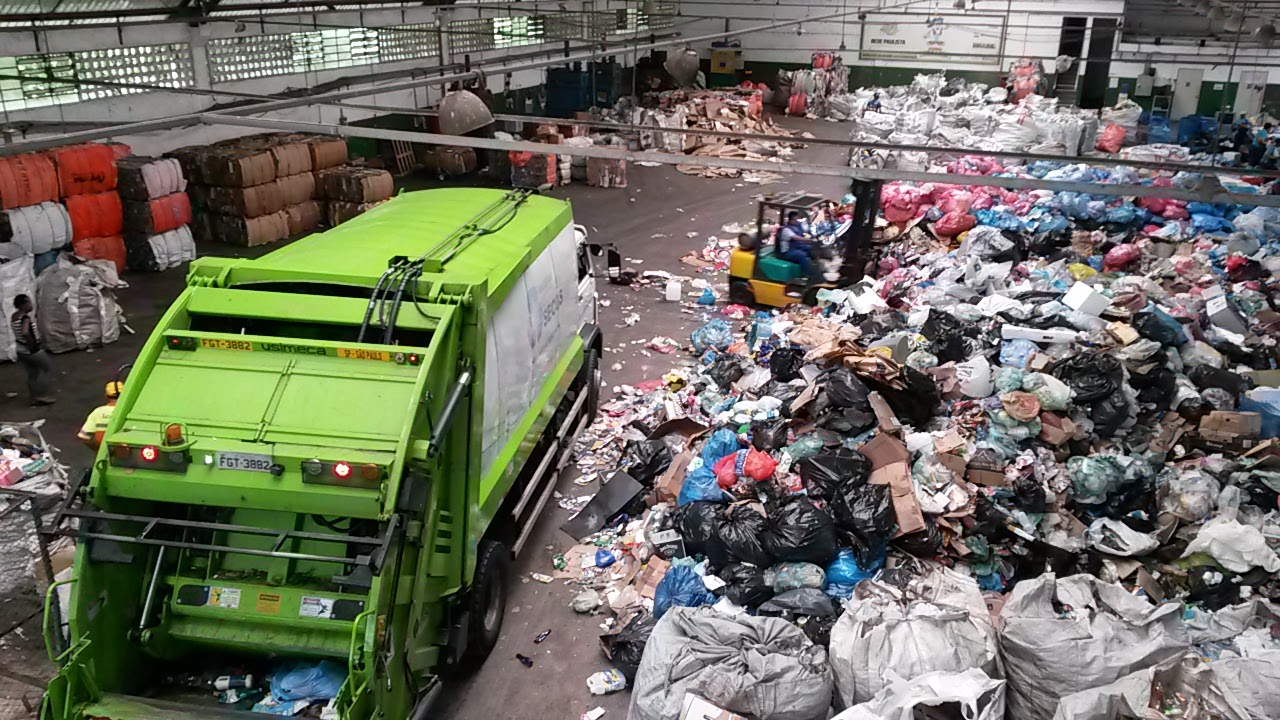Brazil (São Paulo)
Growing up in Brazil, Luciana Oliveira was often exposed to the reality of the hardworking waste picker at an early age. So she decided to create a company that would benefit the Brazilians she saw stuck in the recycling poverty trap, as well as big businesses. Think of New Hope Ecotech as a sort of waste credit market that provides a mutually beneficial arrangement – with the added bonus of preserving the environment of the country that she loves.
The World Bank estimates that as many as 150 million people in the world (250,000 in Brazil) currently survive by collecting and selling solid waste like plastic, glass and metal: “Although these recyclers provide a collection and recycling service for the society, they are rarely treated with respect,” Oliveira explains.
Since 2015, Oliveira’s award-winning software platform has connected street waste collectors with the needs of the country’s biggest manufacturing polluters. It uses data management technology to enable materials to be recycled more effectively to meet the obligations that manufacturers are under – while generating additional stable income for informal waste collectors.
“I have an image of the future which is very clear. People will get used to sorting waste because they know their packaging actually gets recycled.”
This is how it works. Brazil’s Solid Waste Policy, launched in 2010, mandates the collecting and recycling of packaging materials. New Hope Ecotech uses ‘Recycling Certificates’ – tradable environmental securities – that are based on the ‘polluter pays’ principle and similar to Carbon Credits – but for recyclables. Companies can track and trace their pollution footprints – therefore incentivising recycling growth in Brazil. “This growth will be achieved through the creation of a long-lasting mechanism that enables the recycling chain to formalise, to become financially sustainable and to grow: the Recycling Certificates.”
For example, a small aggregator with a junkyard in São Paulo could buy packaging materials from twenty different waste pickers, then insert the transaction information (material, volume, prices) in the NHE software platform through a smartphone. NHE validates the recycling to issue Recycling Certificates to the manufacturers. Revenues are then shared back to the junkyard owner and the individual waste pickers.
Olivera came up with the idea when studying at the Kellogg School of Managementwith her co-founder Thiago Pinto. They wanted to have a business idea that could fit the Triple Bottom Line model. “Thiago and I travelled back to Brazil a couple of times to research about the recycling industry overall, which was especially challenging because we saw how much it relied on the work of poor waste pickers,” she tells us. “That’s when Thiago learned about the new law in Brazil that says that producers need to be responsible for the packaging they put in the market. That was like a light bulb for us!”
“I have an image of the future which is very clear. People will get used to sorting waste because they know their packaging actually gets recycled. It becomes sustainable, generating formal jobs and paying taxes. And workers in recycling will be proud of their role in society.”
The firm’s main current purpose is to help create transparency, but in the future they plan to have a more direct influence on increasing recycling by making direct transfers of funds to recyclers. Oliveira also hopes for formal approval from the São Paulo state level government.
“Our scope is very wide. We are working with waste pickers and small recycling enterprises, multinational companies, government and law enforcement. It is very rewarding to be the link between these three stakeholders who are key to making recycling possible. Our challenge is to understand all these stakeholders’ interests with a final aim of preserving Brazil’s environment.”
Bio
This feature was created as a ‘Breakthrough Brief’ by Atlas of the Future for Project Breakthrough (United Nations Global Compact/ Volans).
Project leader
Luciana Oliveira, Co-Founder, New Hope Ecotech
Support the Atlas
We want the Atlas of the Future media platform and our event to be available to everybody, everywhere for free – always. Fancy helping us spread stories of hope and optimism to create a better tomorrow? For those able, we'd be grateful for any donation.
- Please support the Atlas here
- Thank you!






